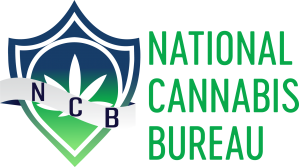Officials in Berkeley, California are set to consider a proposal that would decriminalize psychedelics, including LSD.
The measure is a byproduct of a years-long project that has “lingered for three years in the Berkeley City Council,” according to Berkeleyside, which added that the council is set to “come back to life in a few weeks.”
What distinguishes Berkeley’s proposal from other communities that have moved to legalize hallucinogens is that the northern California city would represent “an even broader proposal: one that could make it the first in the U.S. to decriminalize LSD,” according to Berkeleyside.
“Of the 15 U.S. cities that have softened restrictions on psychedelics, none has included this synthetic hallucinogen. Berkeley Community Health Commissioners Joseph Holcomb Adams and Karma Smart explained that the logic for decriminalizing LSD is that it meets the technical definition of psychedelics,” Berkeleyside reported.
“Berkeley’s resolution was initially drafted by the Oakland-based nonprofit Decriminalize Nature in 2019, and proposed decriminalizing only natural psychedelics, such as psilocybin mushrooms, ayahuasca, and mescaline cacti,” the outlet continued. “The resolution spent two years in the hands of the city’s Community Health Commission (CHC), one of 22 civil commissions advising the City Council. Over the last year, Adams and Smart, the two commissioners appointed to study it, entirely rewrote it. If approved by the City Council, the personal consumption of psychedelics will cease to be criminalized in Berkeley; sharing, giving, or distributing psychedelics will, however, continue to be crimes.”
According to NBC Bay Area, Berkeley “city health commissioners voted unanimously to recommend to the city council decriminalize the use of hallucinogens.”
The legalization and decriminalization of hallucinogens has emerged as the latest frontier in the United States’ drug reform movement.
Earlier this month, U.S. Sens. Cory Booker, a Democrat, and Rand Paul, a Republican, introduced a bill requiring the Drug Enforcement Administration (DEA) to classify therapies involving psilocybin and MDMA in order to improve access for patients and researchers.
“Recent studies suggest that some Schedule I substances such as MDMA and psilocybin could represent an enormous advancement for the treatment of severe post-traumatic stress disorder, depression and addiction,” Booker said in a statement. “Unfortunately, regulatory red tape and a series of bureaucratic hurdles involved in studying Schedule I substances impedes critical research on these and other promising Schedule I compounds. This bill reduces these unreasonably burdensome rules and regulations that delay or prevent researchers from studying – and patients from accessing – this entire class of potential medicines.”
Paul said he was proud to co-lead this legislation, which is known as the Breakthrough Therapies Act, with Sen. Booker that would streamline the registration process for breakthrough therapies currently restricted by outdated drug classifications.
“This bill will make it easier for researchers to conduct studies that can lead to breakthrough therapies to treat patients battling serious and life-threatening conditions,” Paul said in a statement.
The legislation has won the endorsement of Martin R. Steele, a retired United States Marine Corps lieutenant general who leads the Veteran Mental Health Leadership Coalition.
“We urge Congress to swiftly pass the Breakthrough Therapies Act, which responsibly reduces the barriers to research and limited access of potentially life-saving treatments like MDMA- and psilocybin-assisted therapy,” said Steele. “Veterans should not be forced (nor should anyone else) to leave the country – at great expense – to access breakthrough therapies that can be safely provided and further studied in real-world settings here at home.”
Should the bill pass and become law, it would force the DEA to reschedule the aforementioned substances under the Controlled Substances Act.
The post Berkeley Officials Consider Move To Decriminalize Hallucinogens appeared first on High Times.

